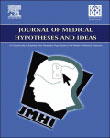The Protective Effect of mammalian Target of Rapamycin (mTOR) in Cisplatin Induced Nephropathy
Author(s):
Abstract:
Cisplatin, a simple inorganic compound, has been one of the leading antitumor drugs especially for solid tumors for near 30 years. The mechanisms of cisplatin include denaturation of DNA and cell mitochondria, arresting cell cycle in the G2 phase and eventually causing apoptosis, inflammation, necrosis and death in cells. Apoptosis is a process of programmed cell death through cystein proteases named ‘caspases'. Pathways of caspase-mediated apoptosis can classified as ‘mitochondrial' pathway and ‘death receptor' pathway Especially caspase-3 plays a crucial role in cisplatin-induced nephrotoxicity through the pathways of apoptosis. The mammalian target of rapamycin (mTOR), is a serine/threonine kinase that regulates both cell growth and cell cycle progression through the phosphotidyl 3 kinase (PI3K)/protein kinase B (Akt) signaling pathway. mTOR regulates both cell growth, cell cycle progression and angiogenesis. By targeting mTOR, the immunsuppressant and antiproliferative agent Rapamycin inhibits signals required for cell cycle progression, cell growth, cell proliferation and angiogenesis. Angiogenesis is extremely important in tumor progression and metastasis. Although rapamycin is proapoptotic agent especially in cancers, there is an evidence that rapamycin can also have antiapoptotic properties through pleiotropic function in the regulation of cell death depending on the cell type and activation state as well as downstream targets of antiapoptotic molecules such as p53 and Bcl-2 proteins. Activation of caspase signaling pathways and dysregulation of pro- and antiapoptotic Bcl-2 proteins have been described previously. So there are links between the mTOR and caspase signaling pathways. Despite its effectiveness, the dose of cisplatin that can be administered is limited by its nephrotoxicity such as acute tubuler necrosis (ATN) causing acute renal failure (ARF). Several agents have been tested to see whether they could ameliorate or augment the nephrotoxicity of cisplatin. Therefore, we hypothesize that mTOR inhibitor rapamycin can inhibit cisplatin induced ATN and ARF through the mechanisms including PI3K/Akt signaling and mitochondrial cell death pathway by affecting apoptosis. If this hypothesis will be proved by experimental and clinical studies, the patients with solid tumors receiving cisplatin may also be treated with mTOR inhibitors to reduce cisplatin induced nephrotoxicity.
Language:
Persian
Published:
Journal of Medical Hypotheses and Ideas, Volume:3 Issue: 3, 2009
Page:
26
magiran.com/p667262
دانلود و مطالعه متن این مقاله با یکی از روشهای زیر امکان پذیر است:
اشتراک شخصی
با عضویت و پرداخت آنلاین حق اشتراک یکساله به مبلغ 1,390,000ريال میتوانید 70 عنوان مطلب دانلود کنید!
اشتراک سازمانی
به کتابخانه دانشگاه یا محل کار خود پیشنهاد کنید تا اشتراک سازمانی این پایگاه را برای دسترسی نامحدود همه کاربران به متن مطالب تهیه نمایند!
توجه!
- حق عضویت دریافتی صرف حمایت از نشریات عضو و نگهداری، تکمیل و توسعه مگیران میشود.
- پرداخت حق اشتراک و دانلود مقالات اجازه بازنشر آن در سایر رسانههای چاپی و دیجیتال را به کاربر نمیدهد.
In order to view content subscription is required
Personal subscription
Subscribe magiran.com for 70 € euros via PayPal and download 70 articles during a year.
Organization subscription
Please contact us to subscribe your university or library for unlimited access!


